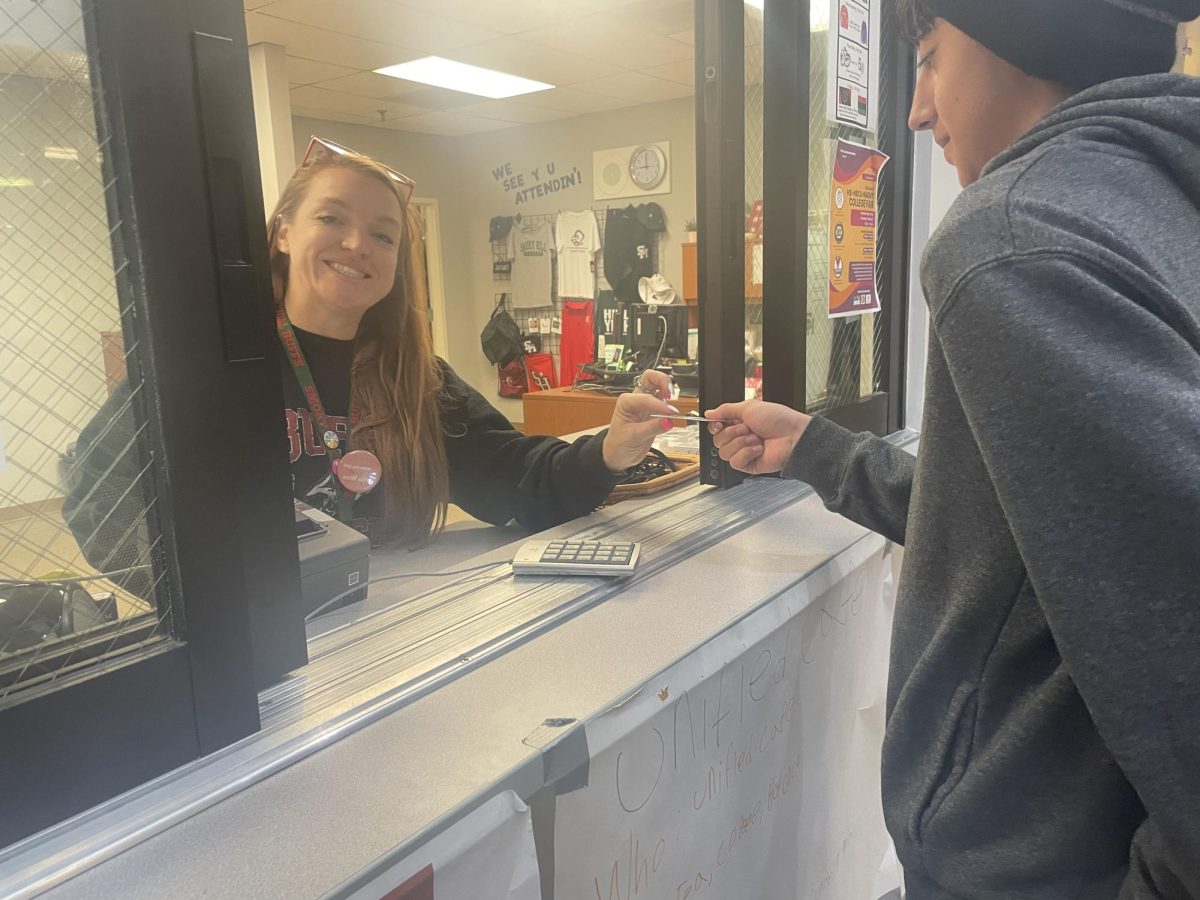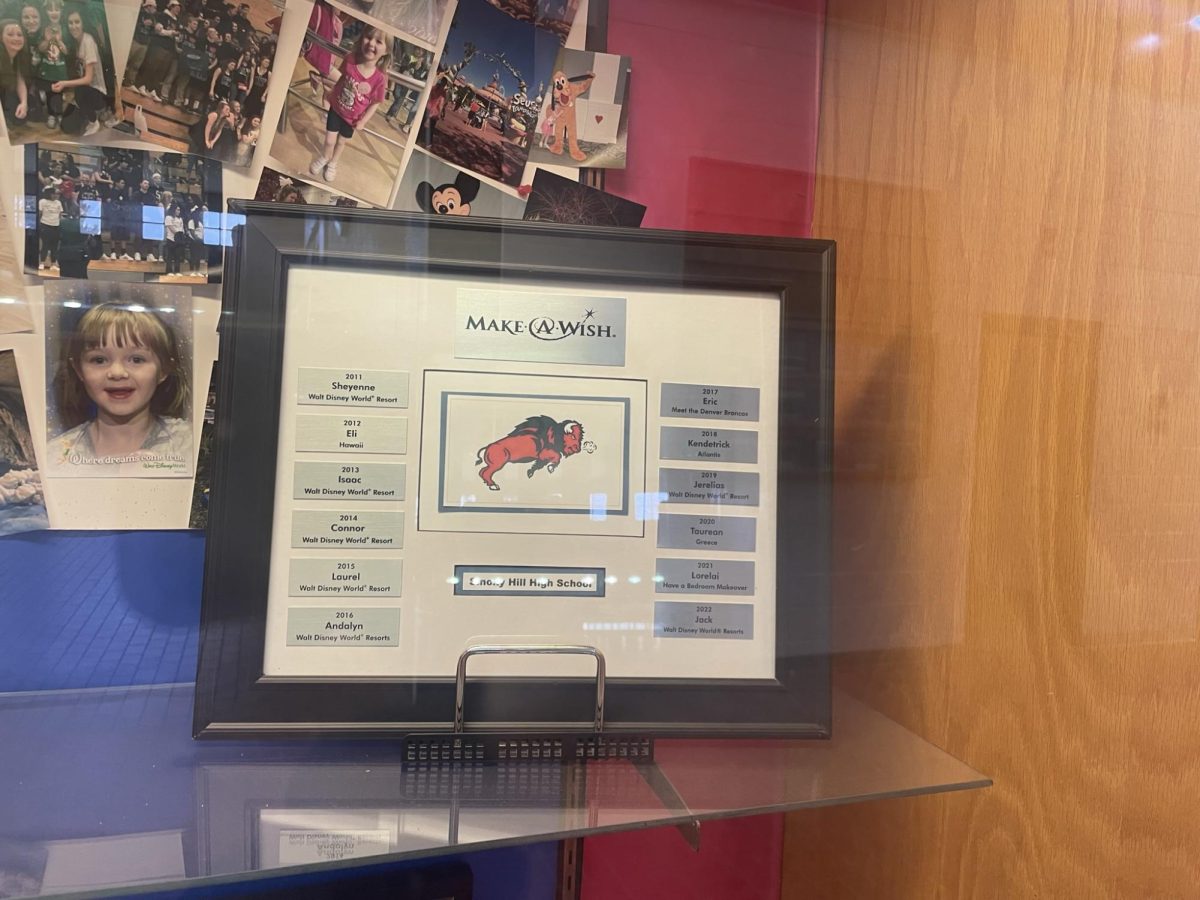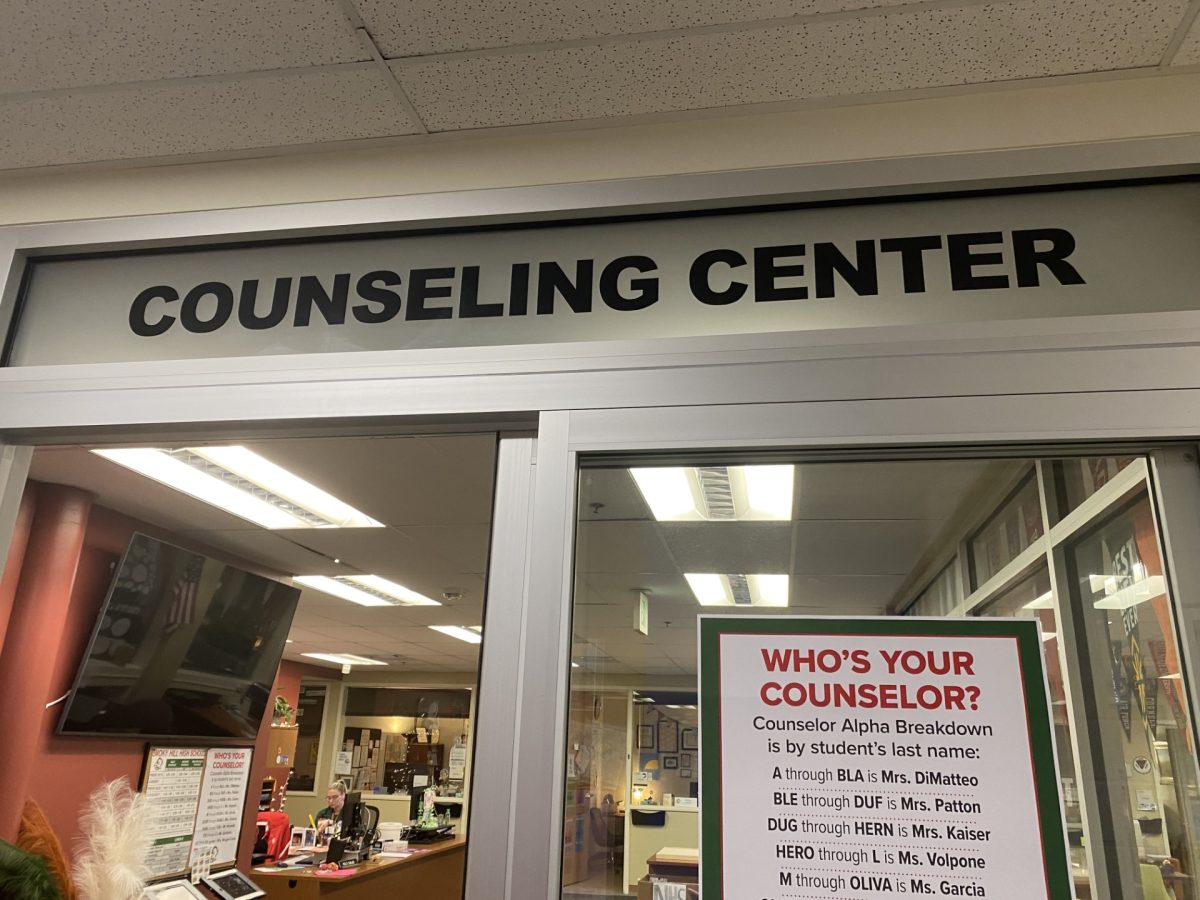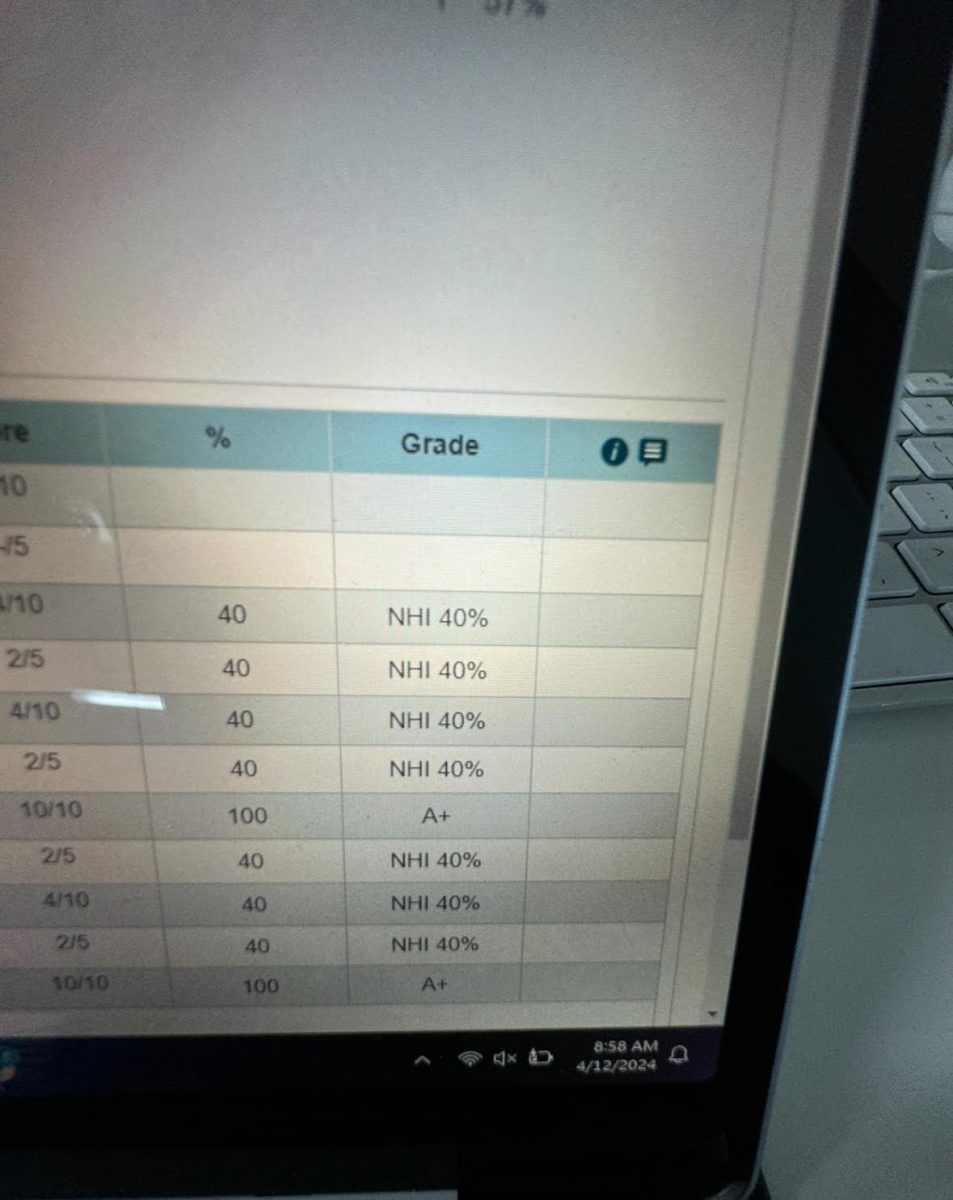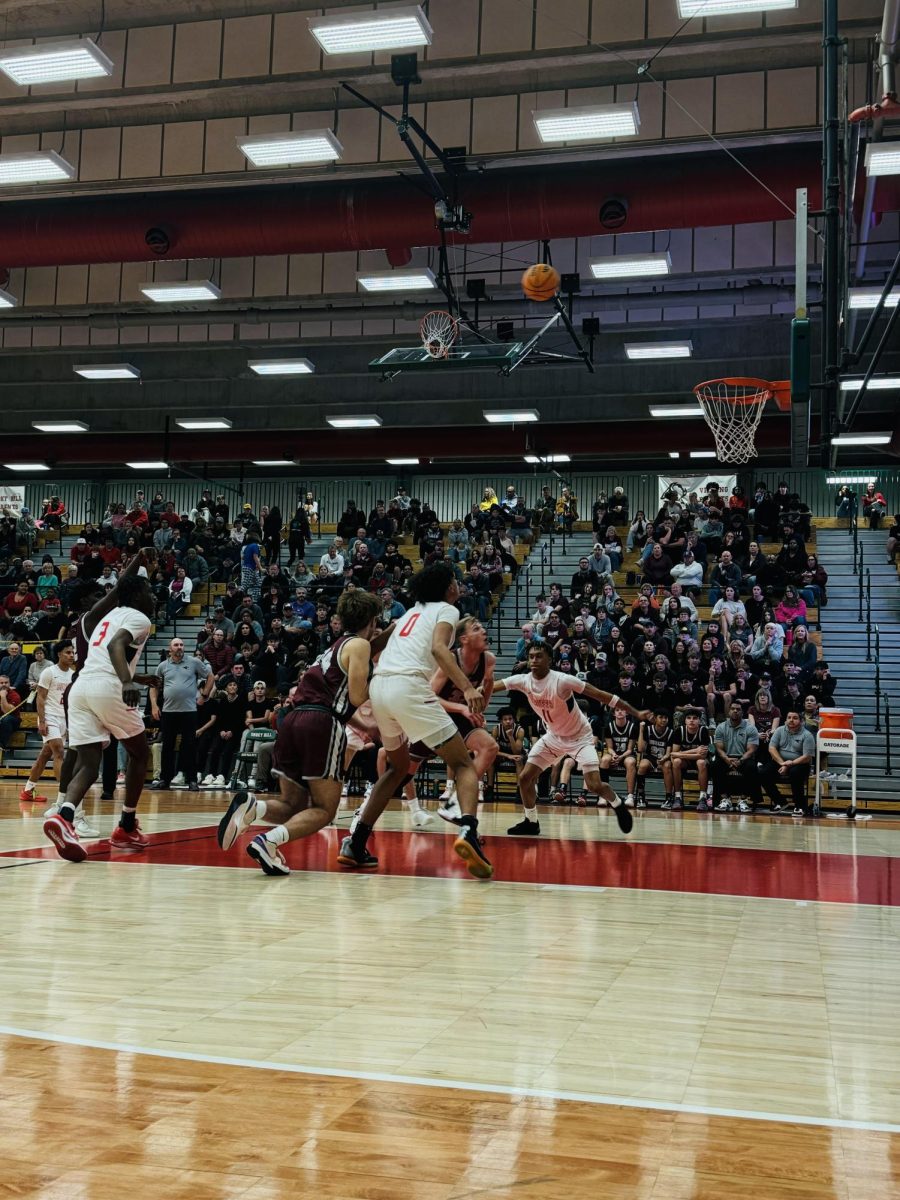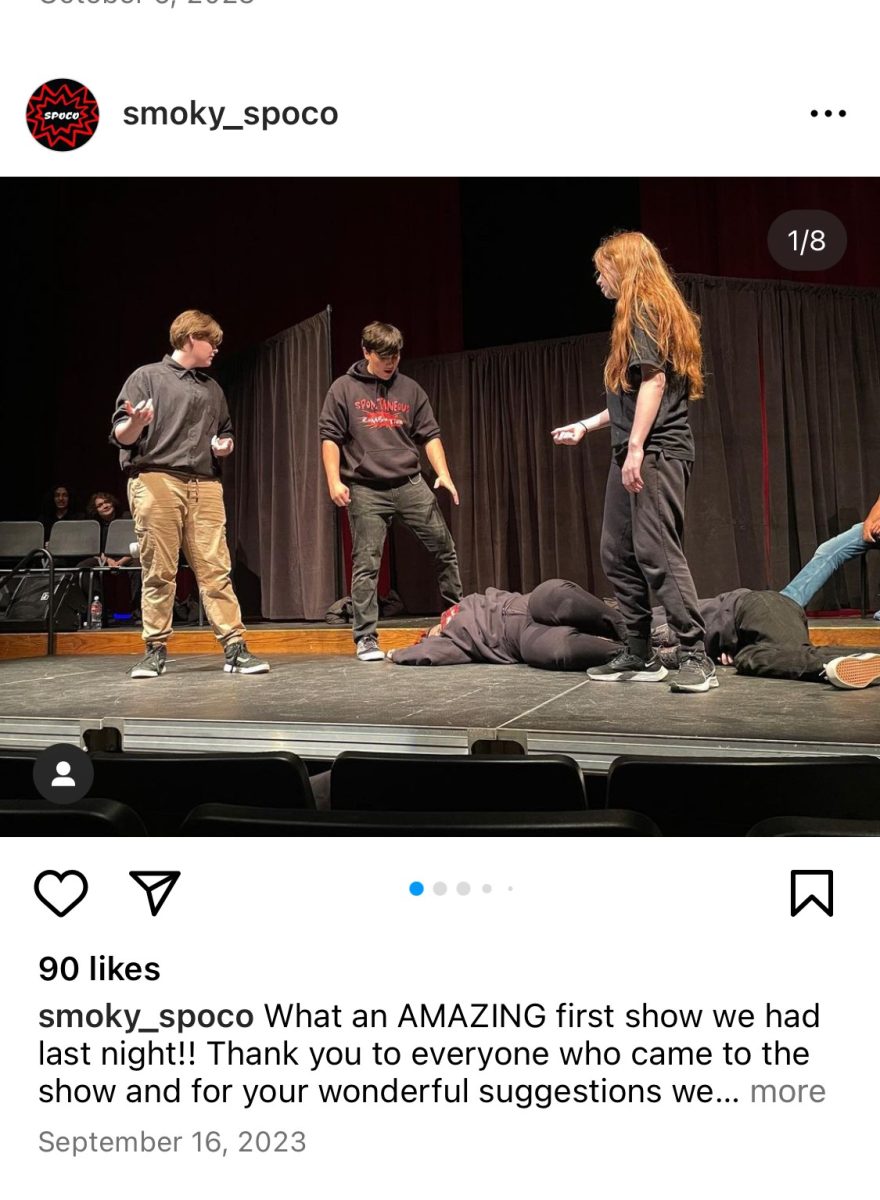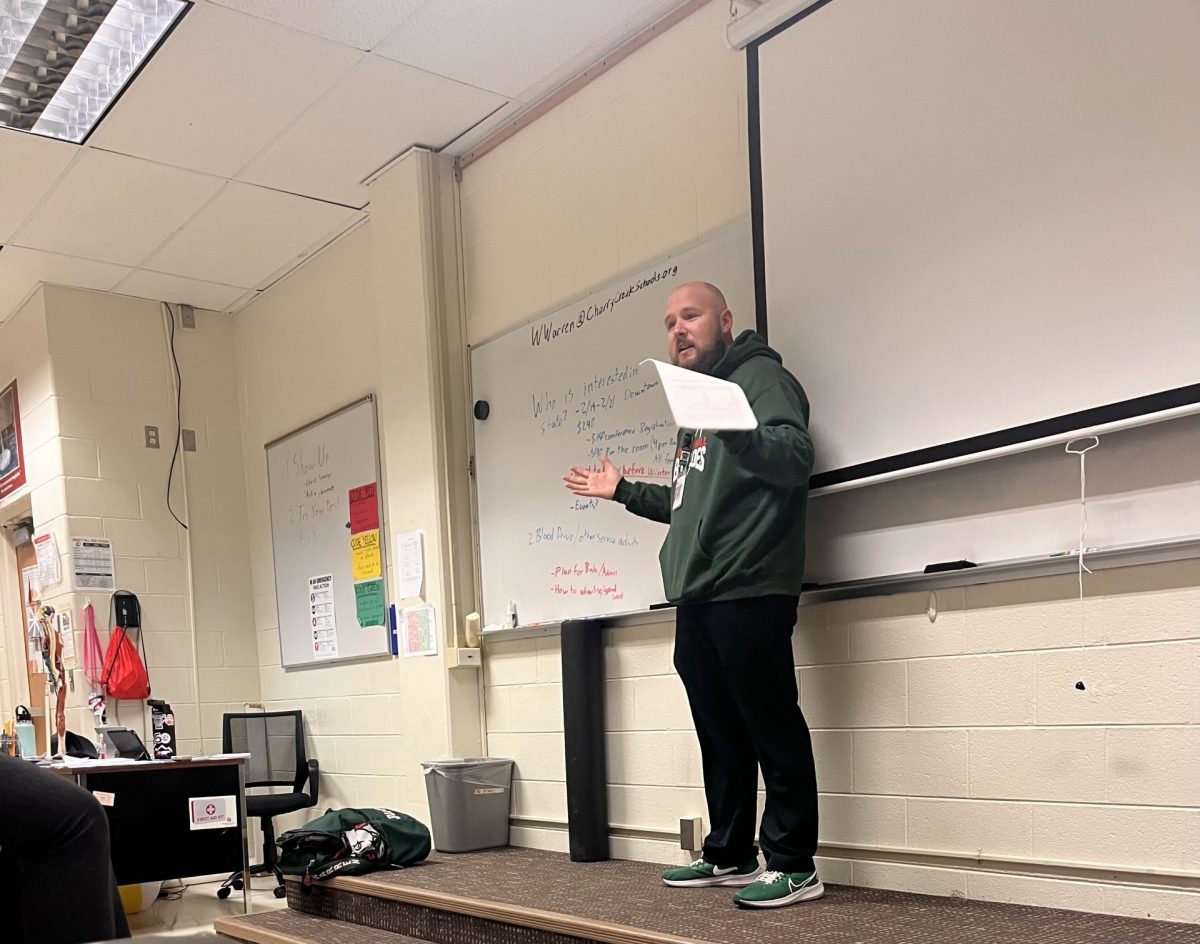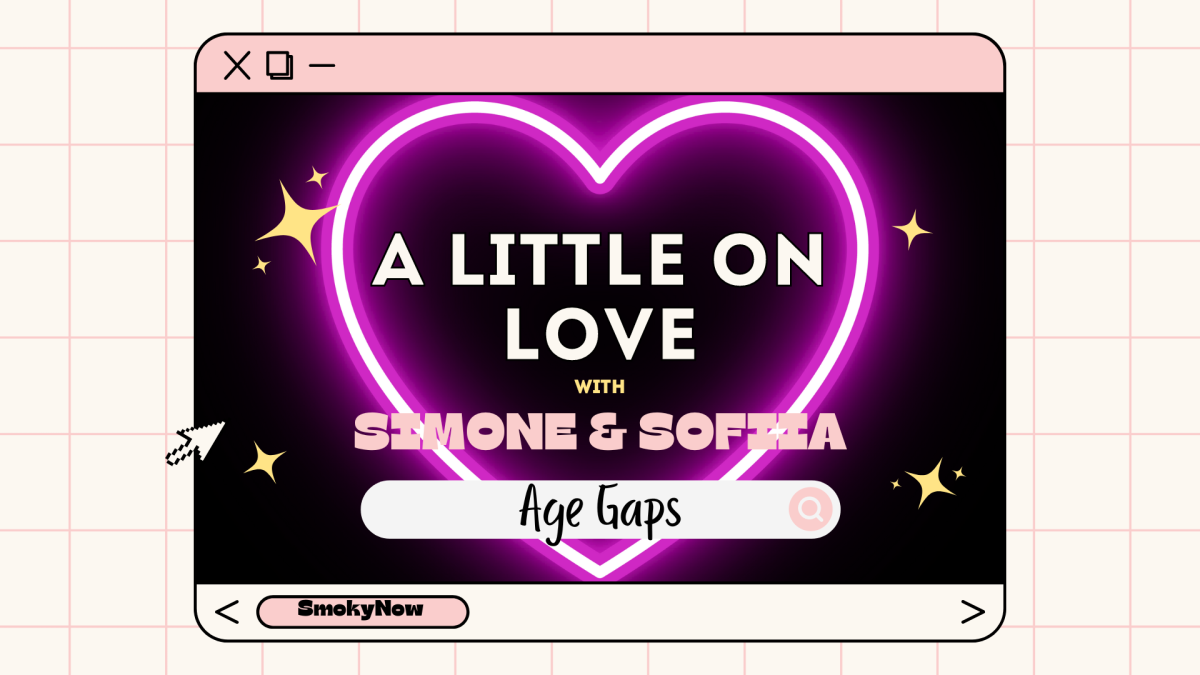Standing for the Pledge of Allegiance
How do students in the building approach the controversy surrounding the Pledge of Allegiance?
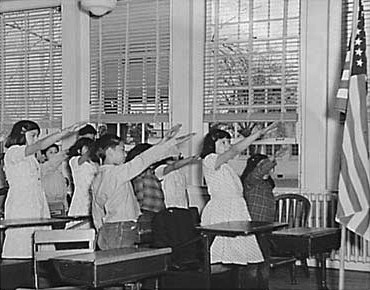
December 9, 2022
The Pledge of Allegiance has been a part of American life since 1892. The meaning of reciting the pledge is a promise of loyalty to the United States. Everyone is entitled to their own opinion if they want to recite the pledge or not. The real issue that needs to be addressed is teachers trying to push beliefs onto students when students themselves have their own beliefs.
According to the law stated on Dismore, “Teachers may not lecture students about patriotism or respect for the flag or if a student refuses to stand; as a way to influence students to participate.”
Reciting the pledge is a first amendment right for people to decide on their own if they want to pay respect for the flag or not. Along the lines of paying respect and loyalty to this country, if a student doesn’t stand for the flag, does that really make them disrespectful, or are they standing up for the voices that aren’t heard in this country?
Standing for the flag probably has to be the most controversial topic to talk about in schools. This topic stems back all the way to 1943 in West Virginia where the State Board of Education Vs. Barnette 319 U.S. 624 was invalidated by the Supreme Court for a compulsory flag salute law in public schools and established that students possess some level of first amendment rights. This was a way of supporting patriotism, it was until in Gobitis that two Jehovah’s Witness school children from Pennsylvania were expelled because they refused to comply with the school district’s policy that they salute the flag and recite the pledge of allegiance. During this time in history, the way that students would salute the flag was inexcusable and sickening. This is shown in the picture provided. This situation was eventually brought to light by Congress and their point of view on the situation was that compelling the flag salute was not necessarily the most effective way to develop and enhance patriotism. The case brought to the Supreme Court was eventually denied because of the way it invalidates students’ First Amendment rights. After all, the history of this country has been through saluting something that doesn’t represent the United States currently, people are entitled to their own opinion.
Do students in the building stand for the pledge?
“I do not stand for the pledge. Just because I feel like currently in America, there are a lot of issues at hand that we could be working better to resolve as a nation. And I don’t know how I feel about supporting or pledging myself to a nation that isn’t doing stuff to stop, you know, sex trafficking, racism, and just inequalities in general,” Allison Calderon (12) said, “I feel like I don’t agree with it. Like I understand that you have to be loyal to your nation and you should be prideful about it, but I feel like there’s not much to be prideful about right now. So why, would you know, recite that if there’s simply nothing to be prideful about?”
This was the start of brainstorming all of the really important issues happening in the United States and why people would choose to not stand for this country.
The United States Pledge of Allegiance ends with “with liberty and justice for all”. Do students think the state of America at the present moment represents this quote?
“I definitely don’t think so. And not even just because of racial issues. There’s a lot of injustice happening with children and foster homes and just financial stuff as well. The rich get rich while the poor just stay poor. And there’s just a bunch of stuff that definitely is not representing the Pledge of Allegiance is promising,” Calderon said.
When interviewing Allison, this definitely had an impact on realizing what the pledge actually stands for. When the pledge states “liberty and justice for all”, it promises that America is an opportunity for everyone to start a new life with freedom and basic human rights. This is why we have so many people immigrating to America, they want a chance at a better life, yet when they come here it’s more of the opposite of what they are actually promised. Who would want to stand for the pledge of allegiance when it’s not the reality for most people who live in America? For most people not standing for the flag is a form of protest for the people who are mistreated in this country. In no way is not standing for the flag a form of disrespect towards anyone who puts their lives at risk to serve this country.
Students don’t have the intention of disrespecting the individuals who serve the country but not standing for the pledge.
“Definitely not because I don’t do it with the mentality of oh, like, I don’t like soldiers or like, you shouldn’t be serving our country. I do it with the mentality of like, there are problems at hand and I’m not gonna act like everything’s okay. I personally am not going to stand for a country that isn’t fixing any of those problems.” Calderon said.
Some other students have similar, yet different reasoning as to why they don’t stand up every morning for the pledge.
“I personally do not stand for the pledge mostly because in the morning I’m exhausted and the last thing I would want to do is stand up, another reason going along with that is that America isn’t as great as it could be in the current moment so I also do not stand for that reason,” Klara Hollingworth (12) said.
Hollingworth believes that the pledge isn’t being used completely in the correct way.
“I think there could be some truth to the pledge, personally I just think it was very misinterpreted so people take things the wrong way and don’t represent the pledge as they should,” Hollingworth said.
Hollingworth firmly believes America isn’t representing “with liberty and justice for all” remotely.
“Not at all, we see this literally everywhere. It’s not even just like, a racist issue, but it’s also like a gender issue. And like, like class issue. There is so much oppression with all kinds of different people in this country and nothing is being done to fix these issues so I feel like that line in the pledge doesn’t represent America one bit,” Hollingworth said.
Some have family members that were or currently are in the military and it puts them in a predicament regarding their beliefs.
“Not at all, I think what soldiers stand for is good. It’s just again, people take it and people misinterpret it. Yeah. And I am thankful because my grandpa was in the military, and he’s told me some stories, but that stuff is hard to go through. So I’m not trying to offend anyone,” Hollingworth said.
These two lovely ladies do not stand for the pledge and are completely entitled to their own opinion. The reasons why they are not standing for the flag are very valid and it’s amazing how they are using the power of silence to speak their mind. This is a very inspiring and powerful energy that should be in our schools.
On the other hand, there are students in the building who do stand for the pledge, like freshman Andrew Wedow. Andrew has a big military family so finding a biased opinion was accomplished.
I asked Andrew a few different questions compared to Allison and Klara. The first question that was asked was “Do you personally stand for the pledge, why or why not?”.
“I do. I have a big military family and I definitely like feel that standing does support the military and all of those people who have died,” Wedow said.
Coming from a military family, Andrew has a different point of view on why he stands for the pledge but still realizes that America isn’t the most perfect country.
“I don’t 100% agree with what it states in the modern time. Some of the things are a little outdated, but as far as standing, I still stand for it,” Wedow said.
Standing for the pledge has a different impact on certain people and even though there are people who do stand for it, they do it for the purpose that they wanna pay respect to the ones who serve this country.
Does Wedow find it offensive if someone does not stand for the pledge?
“I mean, everybody can have their own opinion about it. I feel like sometimes it’s offensive. I get it if you don’t want to stand every day, but especially like Veterans Day or Memorial Day, days where it really matters to support our military,” Wedow said.
With all the different opinions on standing for the pledge, there were very valid reasons why some students at Smoky Hill High School do not stand for the pledge. An example of some of these reasons are injustice regarding different races, injustices in foster care, and simply just not standing because America doesn’t seem to be paying any mind to these really important issues happening at this certain moment. It is good to know that there are still students who do stand for the purpose of respecting the ones who serve this country.
Depending on someone’s morals and point of view if they want to stand or not, America is a free country though, and even if someone does not stand for the flag, in no way are they trying to be disrespectful. They are trying to be the voice a lot of others do not have. Hoping in some way things will be taken seriously and people will realize there are problems we as a nation can solve. The building is a very diverse school that has a lot of opinions and voices that should be heard about a topic like this. Most of the teachers that do work at Smoky Hill are very respectful of the student’s opinions.
Photo credit: https://www.mtsu.edu/first-amendment/article/227/west-virginia-state-board-of-education-v-barnette


